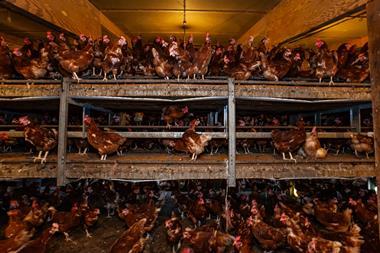
Wholesalers have welcomed changes to the government’s extended producer responsibility regulations, which could save businesses millions of pounds.
Following a campaign by the Federation of Wholesale Distributors, business-only packaging that was previously labelled as ‘household waste’ and subject to EPR fees will now be correctly redefined.
“This is a big win for the wholesale sector. The household waste definition would have a major financial impact on our members and meant a substantial increase in their operational expenses, posing an unsustainable burden”, said CEO FWD James Bielby.
“Particularly given the wholesale sector’s already thin profit margins, for some it would have run into millions of pounds a year.”
The increase in wholesale expenses, and costs being passed on to the supply chain, would eventually have resulted in higher food prices for consumers, said the FWD.
According to Defra’s definition, the new change will “widen out the definition of household packaging to allow for more packaging to be fairly exempted from being defined as household packaging and therefore attracting disposal cost fees”.
Defra said: “We received valuable feedback from stakeholders who expressed concern that the previous definition of household packaging resulted in some business-only packaging, such as a 50-litre beer keg, attracting a disposal cost obligation, particularly where the packaging was supplied via wholesalers or intermediaries.
“To address this, we have amended the definition of household packaging to ensure that business-only packaging that is not likely to be disposed of in a household bin, will not be classified as household packaging.
Bidcorp UK CEO Andrew Selley said: “EPR is an important step towards net zero, but the previous regulations would have severely impacted wholesale supply, with all packaging being classed as for domestic use rather than commercial use.
“The team at FWD have worked tirelessly to rectify this unjust situation and the latest news is both an excellent result and testament to the ability of FWD to influence government policy.”
Updated guidance is expected to be published by the end of February 2024.



















No comments yet